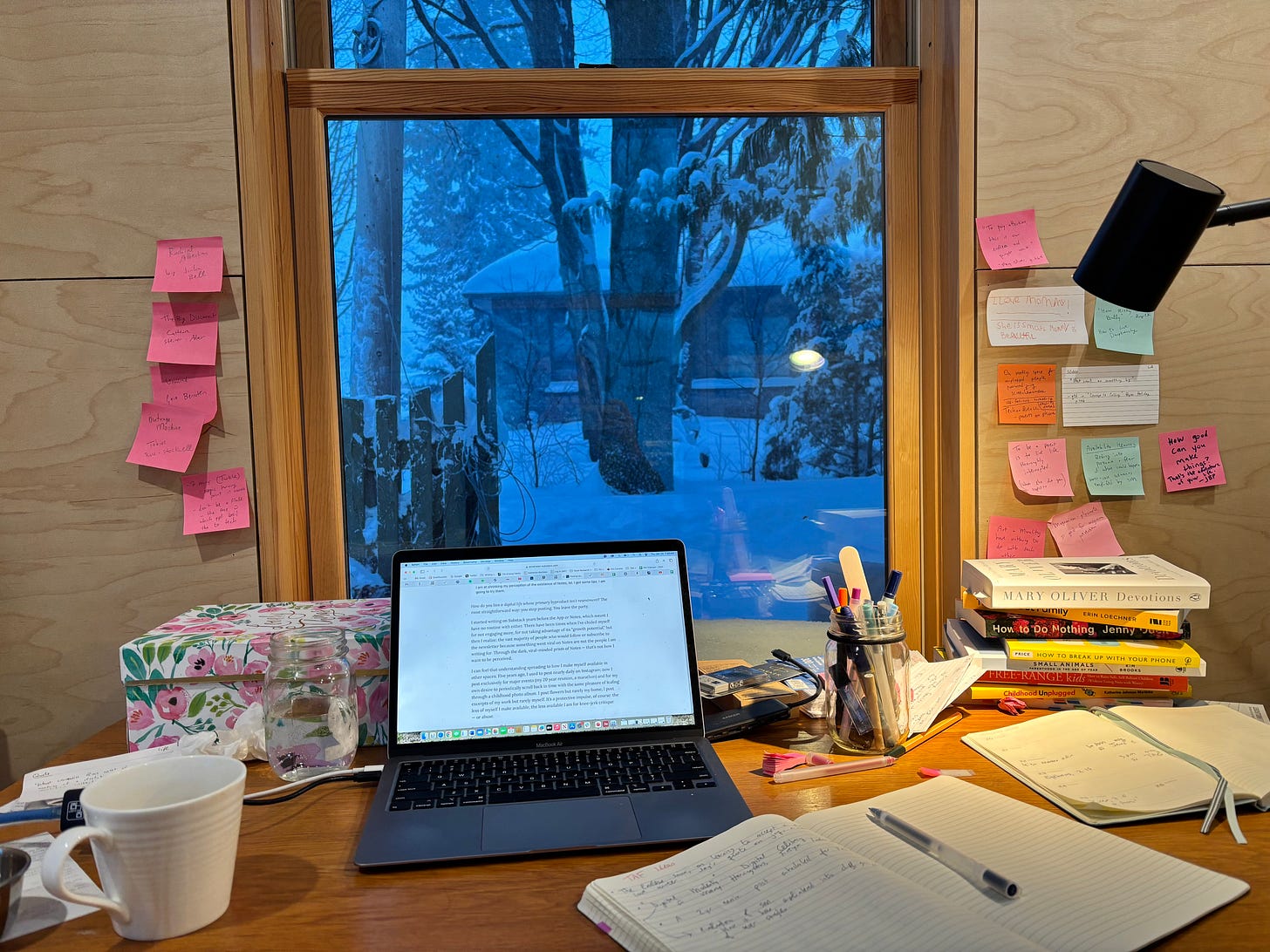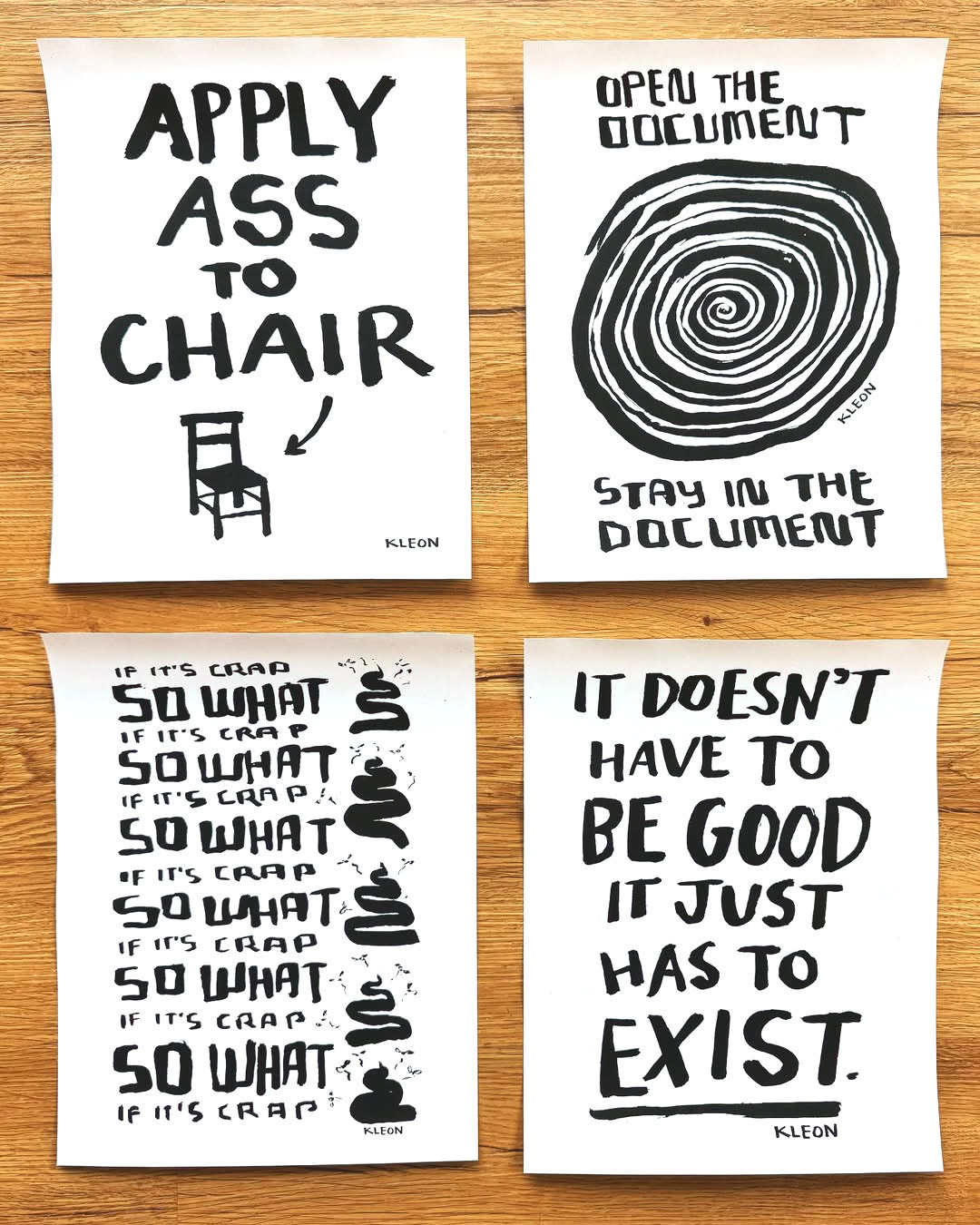“What’s it like being a writer?” my son asked me. He’s partway through high school and starting to think more about what he wants to do after he graduates. He sees his dad, an engineer, head to an office job at a company where he’s worked for 18 years and get a steady biweekly paycheck. He sees me hunched over a computer at home, doing a mix of freelance editing and writing work, making variable amounts of money from month to month.
I tell him I love it. The work is constantly changing, which makes it interesting. The biggest challenge is defining the job for yourself; it’s not clear-cut in the way that being an engineer, a teacher, or a doctor is. Telling someone you’re a writer is inherently vague; people will always assume you’re a dabbler, not a professional (which is annoying), but your effort is the only thing that will make you the latter. Here are some things I’ve learned after 13 years in this industry.
Consistency Matters
Writing/editing from home might not look like a “real” job, but you must treat it like one. You must go to bed early and wake up on time and sit in your chair for a good chunk out of every day, whether it’s a predetermined number of hours or a target word count or until your current assignment is finished.
Writer/illustrator Austin Kleon says, “Apply ass to chair,” and makes cute posters you can hang in your office as a reminder. His writing teacher used to joke that parking your butt in a chair—and keeping it there—is the first rule of writing. He’s not wrong. Show up. Sit down. Repeat, day after day after day, even when you’d much rather be doing something else.
Lots of Work Makes Good Work
Rather than obsessing over perfect work, do lots of work. It is not that quality doesn’t matter (it absolutely does), but quantity is what gets you there—lots and lots of repetition.
In Meditations for Mortals, Oliver Burkeman describes a technique developed by entrepreneur James Altucher. He suggests a daily practice of writing down 10 ideas that feel compelling, i.e., 10 people to reach out to, 10 possible plans for that week, 10 ways to make money, etc. What if 10 seems impossible? “Here’s the magic trick: if you can’t come up with 10 ideas, come up with 20 ideas.”
Burkeman adds, “A quantity goal puts you back in the driver’s seat: instead of hoping you produce something good, you get to know you’ll produce something.”
I’ve learned this lesson many times over, that the secret to good work is just to keep chugging along, keep churning out work. Some pieces will flop, others will shine, and you’ll never know which each will be until it’s been released into the world. (For example, I never expected Go Where You’re Invited, which I wrote in an inspired half hour, to become my most popular Substack post of all time.)
Focus
In a recent newsletter, productivity expert Cal Newport described prolific fantasy author Brandon Sanderson, whose entire work life is structured around “letting him cook,” aka doing what he’s best at. Newport defines this as “a workflow designed to enable someone with a high-return skill to spend most of their time applying that skill, without distraction.” It is safe to assume that Sanderson isn’t wasting hours on answering emails; he’s staying on task, producing the roughly 300,000 words a year that drive his income—because he's good at it!
If writing is what you’re good at and what you want to do, then ensure that it occupies a major chunk of your day. Figure out a system that allows you to focus on it exclusively, leaving other tasks for other days. I have a (bad?) habit of keeping my phone on silent and mostly ignoring email until Thursday each week.
Related: Goodbye, Instagram
Manage Your Inputs
You know the phrase, “Garbage in, garbage out”? The opposite is true, too. If you expect to put out creative work, you must take in creative inspiration. There needs to be a steady drip of quality inputs that offer real food for thought, and you must be diligent about pursuing these sources. When I get lazy, I start running out of ideas. It’s always panic-inducing, but it is a sign that I need to spend more time reading, researching, thinking.
I go to sources such as books, certain news publications, Substack newsletters, podcasts, and radio interviews. I get inspiration from conversations with people. Sometimes doing something physical or looking at art or listening to music can trigger an idea. Sometimes I’ll come across a paragraph in a book that links with an idea in another book, and suddenly there’s fodder for a blog post.
I set aside time for reading each day, usually for an hour first thing in the morning, before my kids are awake, and in the evenings. I read actively, using sticky flags and a pencil, and transfer notes to index cards for future reference.
Related: On Reading More Books
Allow for ‘Soak Time’
As a writer, you must have time and space to think about the inputs and ideas you have. It doesn’t feel productive in the moment; in fact, it can feel quite agonizing to step away from the computer… to do nothing. But without “soak time”, it’s difficult to synthesize concepts into ideas that can be conveyed clearly with words for an audience to understand.
Inspired by Johann Hari, author of Stolen Focus, I’ve begun walking outside for an hour each day without my phone. He says that the quality and quantity of his ideas surged after he established this routine; I’m hoping for the same results. If it’s not a walk, then it might be a solo cooking session, or a workout, or a leisurely bubble bath. But the important thing is for it to be quiet and solitary, just you with your thoughts.
Get a Life
Want a cure for writer’s block? Have a few kids and limit the number of hours you can work. Voilà, problem solved! I’m not kidding. When solitude and focused worktime become a rarity, you won’t waste it. You will become astonishingly prolific out of sheer necessity. Believe me, no one is more productive than a mother whose baby might wake up any minute from his afternoon nap or whose children are about to come home from school. It propels you toward the finish line like nothing else.
It's a Long Game
Networking is important in every job, but I think it’s particularly important in a freelance-based industry where knowing someone can mean the difference between getting work and not getting it. So, make friends and connections, have conversations, reach out, maintain relationships, show up for in-person events. I can trace almost all of my best jobs to someone who recommended me. Establishing a reputation takes years of consistent, excellent performance. There are no shortcuts. Just stick with it, and you’ll get there.
Related: What Happened to Conversation?
You Might Also Like:
About This Winter…
When’s it going to stop?! Here in Ontario, we are enduring the snowiest winter in memory. Buses have been cancelled in our area for 24 days so far—more than 3 weeks’ worth of days that high schoolers can’t report to class because lessons go online (so my oldest son is stuck at home with me), and the younger two kids go to sparsely populated classes where the teachers cannot continue with lessons because there aren’t enough kids.
Meanwhile, all we do is blow snow and shovel. The sidewalks are like tunnels, towering above my head. Highways have been closed for days. I want to share a few photos, to show just how amazing it is. Despite the challenges, I do love it. This is how winter should be.









I do CAD drafting for a living. About 20 years ago, after bouts of sciatica and neck problems, I made the switch to a standing work desk. My life much improved. I lost some weight, and standing up encourages me to walk away for a minute or two, instead of sitting for too long at a time. I am convinced we are not really meant to sit for extended periods. Finally, I can say the quality of my work actually improved as well; the only conclusion I can draw is my brain must be in my ass!
Love these good tips. I love writing (words) but I don’t do it for work, well I do but want to eventually just write what I want. Focus is my challenge. Enjoy cold Canada, I’m in Washington State and is not so bad except the depressing gloomy days/months.